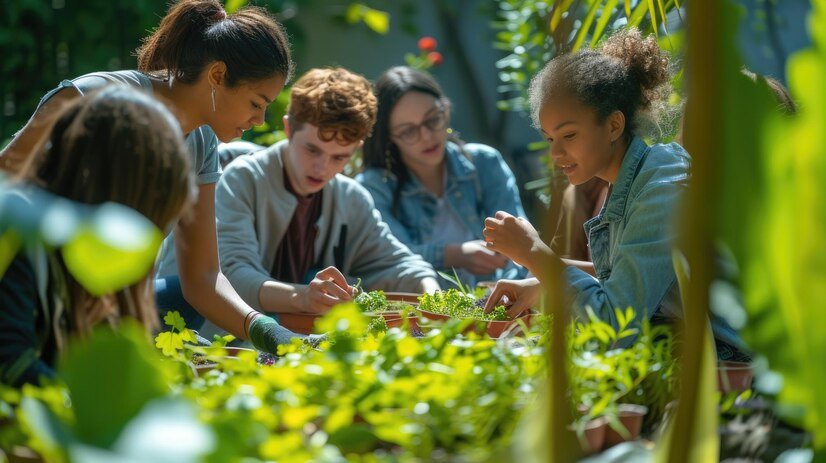
Education is a journey full of twists, turns, and valuable lessons. While formal schooling provides student with important academic knowledge, there are many additional insights that can set students up for success in both their studies and future careers. Understanding how to get the most out of the educational experience takes self-awareness, discipline, and an open mind. Though the path may not always be smooth, embracing these essential education insights will empower students to navigate challenges, maximize opportunities, and achieve their full potential.
Thesis
To succeed in academic and professional pursuits, students should understand their individual learning preferences, hone time management and organizational skills, develop critical thinking abilities, improve communication competencies, attain financial literacy, and prioritize mental and physical health. By internalizing these key insights and applying them diligently, students can build the strong foundation necessary to excel in school and beyond.
Understanding the Learning Process
How students best acquire new information and skills varies based on individual differences. Identifying preferred learning styles enables students to optimize their study strategies. The three primary learning styles are:
Visual Learning
Visual learners absorb information most effectively through visual aids like diagrams, flowcharts, illustrations, simulations, videos, and demonstrations.
Tips for visual learners:
- Take detailed notes using different colors, charts, and graphs
- Draw concept maps to visualize connections
- Watch educational videos and online lectures
- Use flashcards with visual cues to study
Auditory Learning
Auditory learners process information well through listening and speaking. Lectures, discussions, podcasts, and verbal explanations appeal to this learning preference.
Tips for auditory learners:
- Record lectures and listen to them again later
- Discuss topics out loud and with other people
- Mnemonic devices to memorize key facts through rhythms or word associations
- Explain concepts aloud when reviewing materials
Kinesthetic Learning
Kinesthetic or tactile learners favor a hands-on approach. Field trips, labs, experiments, building models, role-playing, and articulating concepts through movement help cement their understanding.
Tips for kinesthetic learners:
- Take study breaks to walk around or stretch
- Use hands-on techniques like typing notes or tracing words repeatedly
- Build concept models and diagrams by hand
- Act out processes through movement or gestures
While everyone uses a blend of learning styles, recognizing which resonates most deeply can allow students to incorporate their strongest modalities into studying.
Active learning strategies also lead to deeper comprehension and retention. Rather than passively listening to lectures or reading material, active learning engages students in the subject matter through:
- Discussion and debate
- Collaborative projects
- Problem-solving exercises
- Self-quizzing and reflection
- Teaching concepts to peers
When students participate more directly, they process information on a deeper level. This enhances understanding of complex or abstract topics. Active learning also builds critical thinking abilities.
Effective note-taking facilitates active learning. Notes distill key course concepts while helping identify areas for further study. Strong note-taking hygiene requires:
- Being selective – recording only the most relevant points, omitting filler words
- Using abbreviations, symbols, and shorthand
- Organizing notes under headings and subheadings
- Leaving space for clarifying questions and personal comments
- Reviewing and synthesizing notes soon after class
Careful study habits reinforce retention. Students should aim to study a little bit every day rather than cramming material just before exams. Key habits like setting a consistent study schedule, removing distractions, and taking regular breaks help avoid mental fatigue leading to diminished returns.
By leveraging their personal learning preferences through active engagement and strategic organization, students gain the tools to excel academically.
Time Management and Organization
Between classes, assignments, extracurriculars, and personal responsibilities, students juggle many competing demands on their time. Refining organizational systems and time management skills allows students to get the most out of their busy schedules.
Creating a weekly or daily schedule provides structure for tackling academic and non-academic obligations:
- Use a calendar to block out fixed commitments first
- Assign set times for variable tasks like studying, errands, etc.
- Schedule breaks to recharge mentally and physically
- Account for transition times between activities
- Build in small time buffers for unexpected interruptions
- Update regularly as new commitments arise
With classes and homework accounted for, students should:
- Prioritize time-sensitive tasks and deadlines
- Batch similar tasks like errands to use time efficiently
- Delegate or remove unnecessary activities if overloaded
- Limit distractions and time wasters that derail focus
Avoiding multitasking preserves concentration for productivity. Focusing on one task until completion leads to quicker and higher quality results than switching between many unfinished tasks.
Organization and preparation allows students to make the most of their time. Habits like laying out clothes, packing bags, and preparing lunches the night before smooth the hectic mornings. Maintaining clean workspaces, notebooks, and digital files also enables students to work more efficiently.
Technology tools lend useful support for time and task management:
- Calendar apps to schedule commitments visually
- Reminder alerts for upcoming deadlines and events
- Note-taking apps to record lectures and thoughts
- Project management apps to breakdown assignments
- File synchronization to access materials across devices
Between classes, extracurriculars, and personal lives, students carry heavy workloads. Disciplined time management and organization reduces the stress of competing demands. By planning ahead, prioritizing effectively, and forming helpful habits, students gain control over their schedules.
Developing Critical Thinking Skills
Critical thinking empowers students to analyze complex ideas, evaluate different viewpoints, and form reasoned conclusions. This skillset serves as a cornerstone for academic and professional achievement.
Characteristics of a strong critical thinker include:
- Curiosity – asking thoughtful questions to deeply understand issues
- Objectivity – avoiding biases and examining topics from multiple lenses
- Metacognition – reflecting critically on own thought processes
- Mental flexibility – considering alternate ideas, perspectives, and possibilities
- Mindful analysis – breaking down arguments and assessing validity of evidence
- Sound judgment – synthesizing information to reach logical conclusions
Opportunities to develop critical faculties present themselves both inside and outside the classroom:
- Scrutinize authors’ theses and support for validity when reading academic literature
- Constructively challenge peers’ ideas during discussions and debates
- Analyze current events through different political, cultural, and historical frames
- Reflect on personal beliefs and trace their origin and evolution over time
- Consider products’, services’, or policies’ benefits and drawbacks fully before forming an opinion
General techniques strengthen critical thinking skills:
- Ask probing questions – Who, what, when, where, why, and how?
- Differentiate between verifiable facts and opinions or interpretations
- Recognize and account for personal biases and assumptions
- Determine the relevance and credibility of data and sources
- Identify logical fallacies and weakness in arguments
- Consider alternate hypotheses and viewpoints
- Practice metacognition by reflecting on reasoning processes
Mastering critical thinking enables students to cut through noise to determine what to believe and why. This empowerment to reach informed, independent conclusions serves learners throughout their lives.
Effective Communication
Communication skills are vital for students’ academic work and future careers. The ability to share information, collaborate, build rapport, and present ideas effectively paves the way for success.
Strong communicators excel at both writing and speaking by:
- Organizing thoughts coherently
- Tailoring the message to the audience
- Establishing eye contact and engaged body language when speaking
- Choosing words carefully to convey the intended meaning
- Adjusting tone appropriately to situation and context
- Listening attentively by minimizing distractions and being present
Students can enhance communication abilities across contexts:
Academic Writing
- Clearly state the thesis and objective
- Structure writing logically with topic sentences and transitions
- Support claims with well-documented evidence and examples
- Use discipline-specific terms accurately
- Follow style guidelines meticulously
Emails
- Use clear subject lines summarizing content
- State purpose and call to action concisely
- Maintain professional tone even with familiar recipients
- Proofread to fix typos and unclear phrasing
Group Projects
- Actively listen to understand teammates’ perspectives
- Provide constructive feedback respectfully
- Compromise to resolve disagreements
- Share work equitably based on strengths
- Unify around common goals and shared priorities
Class Discussions
- Make relevant, thoughtful contributions
- Cite evidence to support opinions
- Respectfully consider diverse viewpoints
- Pose clarifying questions to further collective understanding
Presentations
- Grab attention with an engaging introduction
- Use stories, metaphors, and examples to illustrate concepts clearly
- Make content visually appealing by minimizing text-heavy slides
- Exude confidence through steady voice, posture, and eye contact
Effective communication unlocks opportunities for students to succeed academically, build professional networks, and work effectively on diverse teams. Strong written and verbal abilities become invaluable life-long assets.
Financial Literacy In Student
Financial literacy furnishes students with knowledge to manage finances responsibly. Mastering personal finance empowers students to achieve their goals through prudent budgeting, borrowing, and investing.
Basic financial literacy covers:
- Creating a personal budget tracking income against fixed and variable expenses
- Understanding loans and interest rates; avoiding unnecessary debt
- Opening checking and savings accounts; monitoring transactions
- Building an emergency fund with 3-6 months’ living expenses
- Understanding taxes and filing returns accurately
- Contributing to retirement accounts early to maximize growth
- Comparison shopping for optimal prices on large purchases
Additional financial literacy areas:
- Investing wisely by diversifying assets and avoiding emotional decisions
- Understanding insurance policies – health, auto, renters, etc.
- Navigating major purchases like cars and homes informedly
- Mitigating risks like identity theft through diligent security habits
- Monitoring credit reports and scores using CreditKarma, etc.
- Avoiding scams and predatory financial companies
Financial literacy resources:
- School guidance counselors
- FDIC Money Smart curriculum
- Khan Academy personal finance course
- Mint app for budgeting
- Reddit r/PersonalFinance
Learning money management skills early equips students to make wise financial decisions, positioning them for security and success.
Mental and Physical Health
Achieving personal and academic goals requires sound mental and physical health. Managing health holistically improves students’ quality of life while fostering success.
Mental Health
- Foster a growth mindset to build resilience against setbacks
- Practice gratitude, mindfulness, and self-care activities
- Prioritize sleep, nutrition, and physical activity
- Develop and lean on supportive social connections
- Seek counseling services offered by schools or communities
Physical Health
- Exercise moderately 30+ minutes per day by walking, sports, etc.
- Eat a balanced diet with fruits, vegetables, lean protein, and whole grains
- Stay hydrated and minimize sugar and processed foods
- Visit doctors and dentists regularly for checkups and when sick
- Use protection and get tested to prevent sexually transmitted infections
Stress Management
- Identify sources of stress and accept those out of your control
- Manage time effectively to avoid last-minute pressures
- Take breaks to unwind when feeling overwhelmed
- Employ calming techniques like deep breathing and meditation
- Confide in trusted friends, family, or counselors
Work-School-Life Balance
- Set boundaries between personal and academic obligations
- Schedule free time for hobbies and socializing
- Avoid overcommitting; know it’s okay to say no
- Make time each day to relax and reenergize
Sleep Hygiene
- Stick to a consistent sleep-wake schedule, even weekends
- Make the bedroom cool, quiet, and devoid of screens
- Avoid stimulating activities like social media before bed
- Cut back on caffeine, especially late in the day
Good health directly enables students to focus better, manage stress, and generally get the most from their education. Making health a priority unlocks personal and professional success.
Conclusion
The insights covered – understanding individual learning preferences, honing organization and time management, thinking critically, communicating effectively, attaining financial literacy, and prioritizing holistic health – represent essential knowledge for students to excel in academics and beyond. While not exhaustive, internalizing these core competencies provides a sturdy foundation upon which to build a successful, meaningful life. Of course, the educational journey offers many more lessons through experience. Embracing growth mindsets and practicing lifelong learning helps students continue growing into their full potential. By taking these insights to heart and applying them diligently starting early on, students equip themselves to flourish through school and thrive in their careers.













